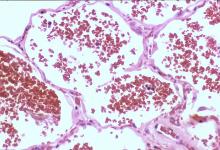NSAID Safety Guidelines Save

Non-steroidal anti-inflammatory drugs (NSAIDs) are widely used for acute or chronic arthritis, headache, visceral pain, postoperative pain, etc but come with a small but significant risk of serious adverse effects, including hypertension, cardiovascular disease, kidney injury and GI complications. The journal Gut has published a multidisciplinary effort from multiple societies (including APLAR/, PAGE, APSDE, APSH, APSN, PoA from Australia, Hong Kong, China, Japan, Taiwan) to formulate new recommendations on the safe use of NSAIDs.
A systematic literature review of randomised control trials and observational studies, resulted in 329 papers that were evaluated using the Grading of Recommendations, Assessment, Development and Evaluations (GRADE) approach for developing evidence-based recommendations.
In summary, these recommendations state:
- NSAIDs should be avoided in patients with treatment-resistant hypertension, high risk of cardiovascular disease and severe chronic kidney disease (CKD)
- Blood pressure should be measured before treatment with a NSAID is started
- Unrecognised CKD should be screened in high risk cases
- Unexplained iron-deficiency anaemia should be investigated
- In those with high cardiovascular risk, and if NSAID treatment cannot be avoided, naproxen or celecoxib are preferred
- For patients with a moderate risk of peptic ulcer disease, monotherapy with a non-selective NSAID plus a proton pump inhibitor (PPI), or a selective cyclo-oxygenase-2 (COX-2) inhibitor should be used
- For those with a high risk of peptic ulcer disease, a selective COX-2 inhibitor plus PPI are needed
- For patients with pre-existing hypertension receiving renin-angiotensin system blockers, empirical addition (or increase in the dose) of an antihypertensive agent of a different class should be considered.
- Blood pressure and renal function should be monitored in most cases.
NSAIDs can be valuable agents in many clinical scenarios. However, toxicity can be minimized with proper patient selection and selection of specific agent, and the appropriate use of ulcer prophylaxis and monitoring with NSAID therapy.










If you are a health practitioner, you may Login/Register to comment.
Due to the nature of these comment forums, only health practitioners are allowed to comment at this time.